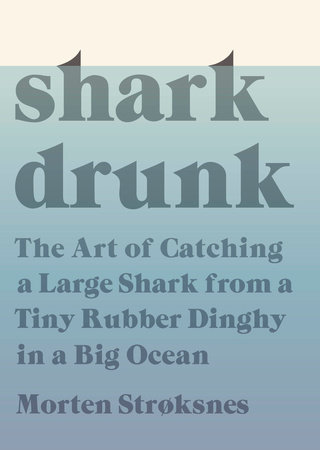Title: Shark Drunk
Author: Morten Stroksnes
Information on series: Not in a series
Audience: Adult
Rating (scale of 1-10): 9
TL;DR: Two Norwegian friends decide to fish for a 2000 pound shark from their tiny rubber boat.
Appeals: Amusing, Engaging, Richly-detailed
Longer Review: In the deep, cold waters of the North Atlantic lives the Greenland shark, a twenty-foot, one-ton, meat-eater that may live to more than 500 years of age. Oh, and its body is so laced with poisons that eating the meat causes a hallucinatory state that the locals term “shark drunk.” Author Morten Stroksnes, a Norwegian journalist, has an artist friend with an interesting idea - take a small boat out onto the ocean to try to catch one. Hugo, the artist, is descended from a long line of Northern Norwegian fisherman and steeped in the lore of the sea and his island home, with a strong streak of self-sufficiency and the eye of an abstract artist. The author is an avid reader of history, natural history and poetry and provides keen descriptions of the scenery of Northern Norway and colorful locals. As their crazy idea develops into a bit of an obsession, this fish story expands through endless digressions into an endlessly amusing and interesting read.
Read-a-likes:
Curse of the Labrador Duck, by Glen Chilton: The author becomes a bit obsessed with the extinct Labrador duck and embarks on a journey to see all of the world’s remaining stuffed specimens. Plenty of humor and local color combined with a wealth of information about an ultimately sobering topic - extinction.
Tony Horowitz books: Horowitz takes a singular premise (Captain Cook’s last voyage, the legacy of the Confederacy, etc.) and follows it through innumerable digressions as his modern travels trace the footsteps of his historical subjects. Humorous and engaging, Horowitz never misses the opportunity to get off-topic, but still manages to convey quite a bit of information about topics which are quite serious.
~ Seth from Ames



